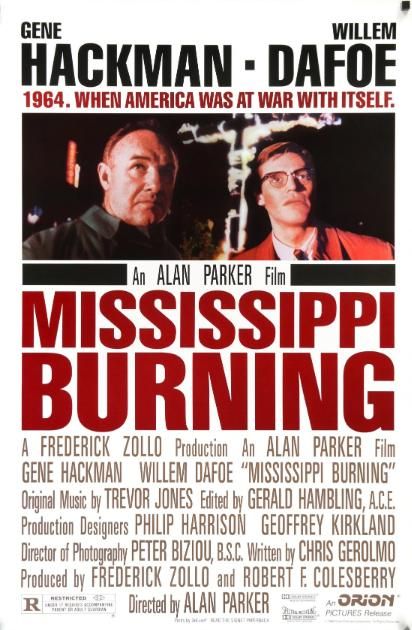One of the issues that many historically based films face when appealing to audiences is proving to them that they should care about something from the past. While it may be interesting to hear about various stories from history, some audiences may struggle to understand why it is worth investing in amidst the present. However, there wasn’t any confusion as to why Mississippi Burning was relevant when it first debuted in theaters in 1988; although the film was inspired by a real series of hate crimes that transpired two decades prior, Mississippi Burning addressed the fundamental flaws within the justice and policing system that have allowed for the institutions of oppression to stay in place for generations. Mississippi Burning remains just as relevant to today’s world because very few of the issues that the film brings up have been addressed by subsequent government regimes.
What Is ‘Mississippi Burning’ About?
Loosely based on a shocking true story, Mississippi Burning centers on two FBI agents who investigate the murders of three Civil Rights activists who went missing during an outreach campaign in Jessup County, Mississippi, where they were aiming to get African-Americans registered to vote. FBI Agents Rupert Anderson (Gene Hackman) and Alan Ward (Willem Dafoe) are both highly motivated to uproot the conspiracy, but they have very different approaches to their investigation; Anderson is a former sheriff who knows how challenging it can be to deal with local justice, whereas Ward is a recent graduate who prefers to take a more by-the-book approach. However, neither agent is prepared for how deeply entrenched the community is in generational hatred, as the local Deputy Sheriff Clinton Pell (Brad Dourif) has deep ties to the Klu Klux Klan. After forming a close relationship with Pell’s wife (Frances McDormand), Anderson realizes that the cops will fight until the end to protect the racists within their ranks.

Related
The Modern Sci-Fi Classic Charlie Hunnam Chose Over ‘300’ Just Landed on a New Streamer
Hunnam chose to take on a supporting role in Alfonso Cuarón’s science fiction thriller instead of being a part of Zack Snyder’s action film.
Mississippi Burning is an unusual conspiracy thriller because the culprit is obvious from the moment that the story begins. As soon as Anderson and Ward step foot in the Southern community, it is clear that no one wants to talk about the missing activists and show little sympathy for their cause. While it is initially easy to dismiss their rudeness as simply indifference, Anderson discovers that nearly every level of infrastructure in Jessup has its hands dirty. This makes the fight to identify the murderers far more challenging, as evidence, resources, and records are all locked away by Pell and his inner circle. Although the FBI is often framed as a powerful institution that has an unabridged ability to pour time and care into a case, Mississippi Burning shows just how powerless agents like Anderson are when they are facing off with a local system that has rigged the law in their favor.
‘Mississippi Burning’ Is a Complex Analysis of Institutional Racism
Mississippi Burning shows that racism takes many different forms, as the crimes in Jessup were the result of propaganda that infected every member of the community. The film shows the striking difference between how Pell and Anderson conduct themselves; while Anderson seeks a position of influence because he thinks that he can genuinely make the world a better place, Pell seeks authority so that he can have the power to protect himself and others. This is perhaps the theme of Mississippi Burning that continues to resonate so powerfully today; when the law is not able to hold those guilty of discrimination accountable for their practices, there is little enthusiasm for actually trying to make societal change.
Despite the positive light that the film casts both Anderson and Ward in, Mississippi Burning is not a “white savior” movie because it does not suggest that the FBI was successful in its mission. Even if members of the conspiracy were identified as a result, the film suggests that they were simply a microcosm of a much larger issue that is no closer to being resolved. Mississippi Burning was acclaimed in its time, earning several Oscar nominations including Best Picture, but the film’s straightforward, albeit cynical analysis of America makes it just as powerful today.
Mississippi Burning is streaming on Prime Video in the United States.
Source link


